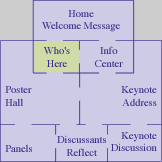|
abstract:
|
In collaboration with Arizona State University, the Mesa School District is providing systemic reform for all teachers in grades K-8. The Mesa School District has twenty years' experience of providing teachers with professional hands-on science and mathematics development. Special emphasis is being placed upon four critical areas: 1) new teacher support; 2) cross-district leadership development; 3) moving beyond mechanical use of curriculum; and 4) supporting diversity and equity in special populations.
As one of the fastest growing cities in the country, it is projected that the number of teachers will increase to accommodate the growing student population. This initiative is preparing for this constant growth of teachers by providing leadership development and teacher training. As the population grows, a growing number of the students are from minority and lower income families. This project realizes the need for additional professional development of administrators and teachers to effectively serve this diverse student body. The project is moving towards the creation of true learning communities at each school site.
The primary focus of the Mesa Systemic Initiative is to move teachers along a continuum of growth in using hands-on curriculum. The technology for teacher enhancement includes the integration of software application and computer-assisted instruction in the curriculum, distance learning, telecommunications and video technology. The training includes cross-district leadership development and instructional opportunities in content and pedagogy. Most of the teachers are expected to exceed the minimum 100-hour professional development requirement.
The curriculum units are designed for grades K-6 with three units at each grade level designated as "core" science units required to be taught by every teacher. Additional units integrating social studies, health and foreign language are also required at specific grade levels. The majority of this curriculum reflects the changing needs and abilities of Mesa teachers. The current curriculum centers around the utilization of thematic units that are supported by print materials, laser discs, CD-ROM discs and more importantly a wide variety of science materials. The overall outcome for learning at this level is to foster the continued development of the concept of "lifelong learners." The district mathematics curriculum reflects the NCTM standards by utilizing alternative strategies, such as, manipulatives, calculators and cooperative learning.
The primary responsibility of Arizona State University is to lead in the design and development of the content components in the professional development of teachers. As a result of this project, a redesign of the pre-service programs for teachers at ASU is underway. ASU is also responsible for increasing the number of preservice teachers and the amount of involvement time preservice teachers spends in Mesa classrooms. Finally, they develop special graduate programs and mentoring support for current teachers who need to become certified in the areas of mathematics and science.
This systemic initiative is unique in that it recognizes that a traditional "one-size-fits-all" staff training approach is not the most effective way of enhancing teacher development. Instead, the Mesa School District realizes that teachers are naturally at different levels of professional development and therefore need different tools and resources.
|


